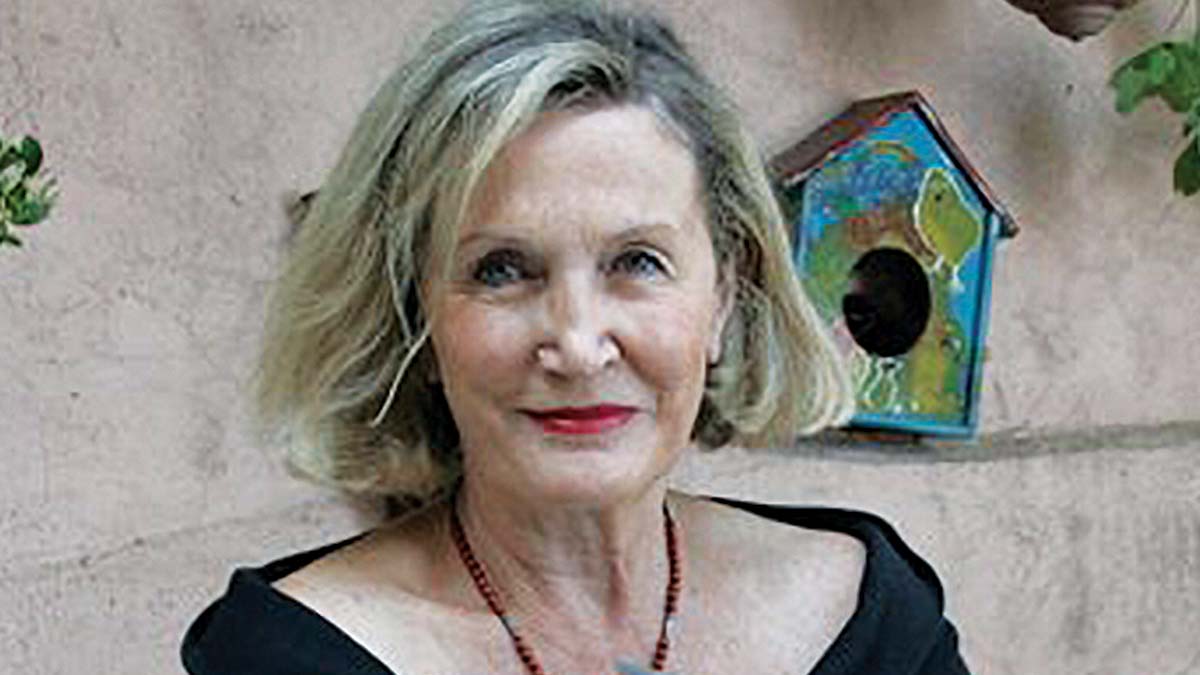AS I SEE IT
BY MARIANNE HERON
EVERY so often a new buzz word enters our vocabulary and one of the loudest buzzes now is sustainability. Quite right too, given the urgent need to address climate change and this year’s extreme weather with soaring temperatures, wild fires and floods, should be enough to convince us just how urgent that need is. But it’s a word that frequently gets used meaninglessly. Take someone talking about their company’s new sustainable policy or sustainability for their fashion brand where they don’t mention how their claim really does what it says on the tin. Is this just so much greenwash?
Without an explanation there is no way of knowing if the production methods involved are really going to make a difference at all to the planet. In the case of fashion, I sometimes suspect that the garments in question are simply more expensive. Well at least the garments are likely to get replaced less often. We really should know by now that we are using up planet Earth’s scarce resources and that we can’t carry on this unsustainable manner, so we all have to make changes. But the argument that carrying on producing and consuming so long as the products are mere described as sustainable doesn’t add up.
We need to consume less and consume things that are genuinely more sustainable. Wikipedia defines sustainable as “living a lifestyle that attempts to reduce an individual’s or society’s use of the Earth’s natural resources, its practitioners often attempt to reduce their carbon footprint by altering their methods of transportation, energy, consumption or diet”.
It is easy to think that the ball is in someone else’s court when it comes to making changes: the Government should take action or the farmers need to find some way to stop cows burping up the greenhouse gas methane when they chew the cud. But this is something that involves everyone, households are responsible for nearly a quarter (23.9%) of the greenhouse gases created by transport and energy use. That’s without taking all the things that we buy and consume into account. One study quoted in the Journal of Industrial Ecology estimated that households are responsible for 60% of greenhouse gas emissions that’s taking everything — food, fashion, energy, fuel — into account. It can be daunting to know where to make a start too but even small changes can make a difference. One way is to adopt the circular economy, make, mend and reuse and I have started doing my bit here.
I often wear OPs (Other People’s cast offs,) or PLs (Previously Loved Garments from charity shops.) Making my own clothes is an option too but have you noticed how few fabric shops there are around, never mind haberdashers? I do wonder though, what happens to all those jobs in the fashion industry and retail sector if everyone adopts the circular economy?
That is a conversation that we haven’t even begun. Currently I am consuming my home raised veg, grown peat free with garden compost and leaf mould gathered from the woods, (although I haven’t found a culinary use yet for courgettes which grow to marrow size.) Flowers come from the garden rather than buying ones that have been flown from around the globe and come to Ireland via Dutch flower markets. Going to the butcher and the fishmonger involves less plastic and packaging than buying in supermarkets, but when are shops going to start using paper for wrapping? Those are small things, big ticket items lie ahead to be tackled like changing to an electric car,(more consumption) retro-fitting the house, maybe installing solar panels and not using the car when going to town.
But there are lots of questions to be asked. For instance, why don’t we have more electric recharging points for electric cars and hybrids, what really is the sustainable truth about electric car batteries which need to be changed after several years?
Why aren’t there realistic park and ride provisions so cars can be left behind? And those sustainable claims really need to be, er, sustainable.

















